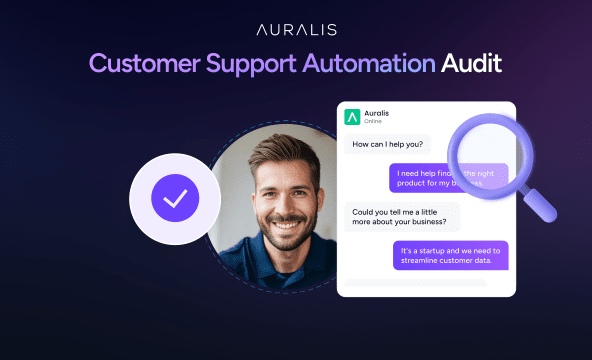Customer Support Automation Audit
A customer support automation audit is a thorough evaluation of the automated systems, tools, and processes used in customer service to assess their effectiveness, efficiency, and alignment with business goals. This audit helps businesses identify opportunities for improvement, ensure that automation tools are functioning optimally, and determine whether they are enhancing the customer experience. It involves reviewing various aspects, such as AI-powered chatbots, automated ticketing systems, and workflow automations, to ensure that they meet customer needs and support operational objectives.
The first step in a customer support automation audit is assessing the scope and performance of the automation tools currently in use. This includes reviewing the types of tasks being automated, such as answering frequently asked questions, routing tickets, handling order inquiries, or providing product recommendations. It’s essential to ensure that automation tools are being used in the right areas to maximize efficiency while still allowing human agents to manage more complex queries.
Another critical element of the audit is evaluating the accuracy and quality of responses generated by automation tools. Chatbots, for example, should be equipped to handle a wide range of customer inquiries accurately and offer consistent responses across all channels. If the system frequently provides incorrect or incomplete answers, this may lead to frustration and a negative customer experience. During the audit, it’s important to assess whether the automated system is correctly integrated with knowledge bases, CRMs, or other support tools to ensure seamless data flow and personalized service.
The customer journey also needs to be examined to ensure that automation is improving the experience without compromising on personalization. Although automation helps streamline processes and reduces response times, it’s important that customers feel valued and understood. The audit should assess whether the automation tools are personalizing interactions based on customer history, preferences, and previous issues. A chatbot that remembers past conversations or a ticketing system that routes inquiries based on customer type can enhance satisfaction and trust.
Performance metrics and key performance indicators (KPIs) should be reviewed to measure the impact of automation on customer support operations. Common KPIs include first response time, resolution time, customer satisfaction (CSAT) scores, and the percentage of inquiries handled by automation without escalation. Analyzing these metrics helps determine whether the automation tools are effectively reducing the workload on human agents and improving service quality.
Finally, the audit should examine the overall customer feedback on automated support systems. Gathering insights through surveys, reviews, and direct customer feedback is essential to understand whether automation meets customer expectations. If customers feel that automated systems are impersonal, inaccurate, or inefficient, businesses can use this feedback to adjust their strategies and make necessary improvements.
In conclusion, a customer support automation audit is a comprehensive review that ensures automation tools are effectively enhancing service delivery while aligning with business goals. By evaluating the tools’ performance, accuracy, personalization, and overall impact on the customer experience, businesses can refine their automation strategies to achieve greater efficiency, customer satisfaction, and operational success.

- Articles
Customer support automation has become a must-have for businesses across industries. Whether you’re running a small business or an enterprise,
-
 Amy
Amy
- 7 min read
